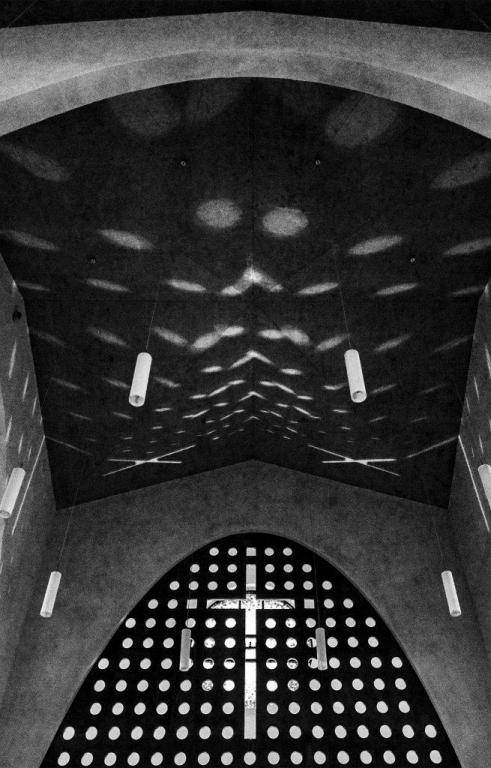| Description: |
In the Urban Fabric
One could hardly take on the task to assess and interpret the new Catholic church of the Lágymányos district in Kelenföld without referring to the contemporary conditions of sacred architecture as such and thus entering into the discourses about it if only briefly. As theological, liturgical, cultural historical, psychological, sociological etc. as well as architectural works are mushrooming nowadays, this phenomenon may as well suggest that the topic attracts even more attention as the role of religiousness is pushed into the background. The fact that one of the most comprehensive works on this theme, the two-volume book by Lindsay Jones titled The Hermeneutics of Sacred Architecture was published in 2000 may be a result of this. The author divides the semantic layers associated with sacred architecture into three groups labelling them as orientation, commemoration and the reception of liturgical actions. Concerning our topic, especially the first one, orientation seems well worth paying attention to as the new church in Lágymányos offers more than the average from this regard. This is also the final conclusion of our study. According to Lindsay Jones, the aim of orientation is the presentation of the celestial archetype as the „celestial Jerusalem” (homology), as well as that of the relation to its historical sacred prototype (convention), and its relation to the points of the compass and celestial bodies (astrology). As a result, the relation of the sacred building to the community which uses it, to society as such and to its natural and artificial environment are all pushed into the background. However, as far as the latter is concerned, the presence of urbanisation allows a new sacred building to appear in an environment similar to the one the new church in Kelenföld has been built into, which is actually an alien context regarding social environment, spatial order and architecture too. As opposed to traditional towns, where sacred buildings are still preserved as the spiritual and physical centres of the community and thus function as „orients”, and sacred structures tend to rise above their context also in the physical sense, this church is dwarfed by the masses of prefab blocks, especially because of its positioning between two ten-storey high-rises regarding its character, scales and proportions. Besides, the site itself faces Fehérvári Road, but also borders on the backyard of an outdated business and commercial centre which badly needs a facelift or even remodelling. As a result, the site may also be regarded as a potential oasis because of its orientation. Dr. Tamas Meggyesi |
|

 2683 /
2683 /  4
4
 Like all websites, eptar.hu uses cookies for better and safer operation.
More information
Like all websites, eptar.hu uses cookies for better and safer operation.
More information